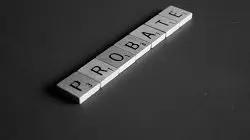Question: My mother recently passed away and I received something in the mail called a “Waiver of Process; Consent to Probate”, what does this document mean?
Answer: You received this document because the Executor is trying to “probate” your mother’s Will. Probating a Will means that the Executor is submitting a petition to Court and asking that the Court issue “letters testamentary” which allow the Executor to act. Most people think that upon death, the Executor is automatically empowered to act. However, the Executor must first be appointed by the Surrogate’s Court. The law requires that every person that has an interest in the estate be given notice and an opportunity to object to the Will. If your mother died without a Will, her spouse and her children are “interested parties” and “distributees” which means that those parties would inherit from her estate if she died without a Will.
A person seeking to probate a Will in New York must either obtain this signed Waiver and Consent from every distributee of the estate, or go through a longer and more expensive process of obtaining a court date and serving formal notice on all distributees that do not consent. This formal notice is known as a “Citation”. The Waiver and Consent is used to speed up the process when everybody agrees that the Will is valid and that the Will should be admitted to probate. If every distributee signs this Waiver and Consent it can save the estate significant time and expense.
What Happens If I Sign the Waiver and Consent Document?
If you sign the Waiver and Consent, you are stating that you agree that your mother’s Will is a valid and that you consent that the person nominated in the Will may be appointed as the Executor of the Estate.
What Happens If I Refuse to Sign?
If you refuse to sign the Waiver and Consent, nominated executor will be required to serve you with a Citation which gives you a date to appear in Surrogate’s Court. This date is a deadline by which you must formally object to the Will or request limited discovery about the execution of the Will. This limited discovery is called SCPA 1404 Examinations. These SCPA 1404 exams allow document discovery for the time period the will was executed and the right to question under oath the attorney that prepared the Will as well as the witnesses. If you fail to timely object or request the SCPA 1404 exams, you lose your right to object to the Will. The Will is then admitted to probate and the Executor of the Estate is appointed.
If You Do Not Believe the Will Is Valid
If you believe that the Will is invalid, do not sign the Waiver and Consent. As soon as possible you should contact an attorney experienced in estate administration matters. Through your attorney, you can assess if you have good cause to challenge the validity of the Will. As a distributee of an estate you may have the right to challenge the validity of a Will but there may not be grounds to object. There are very specific grounds to contest a Will in New York.





